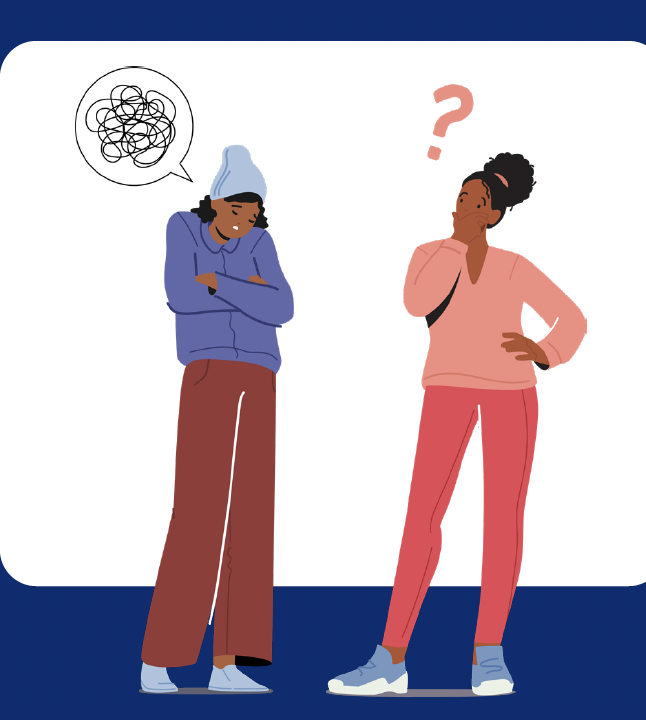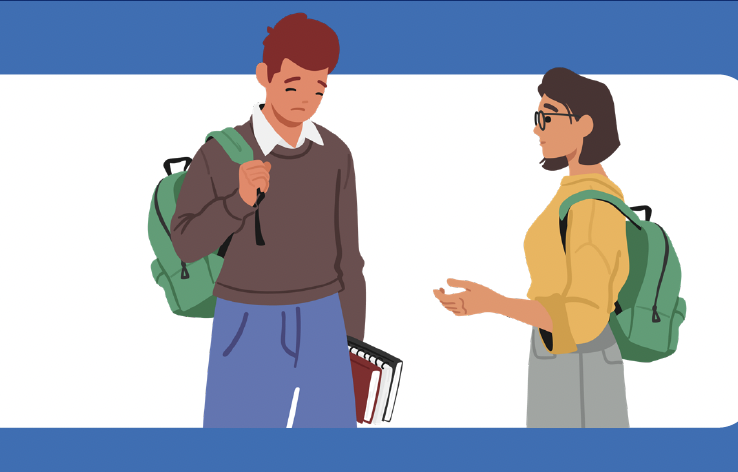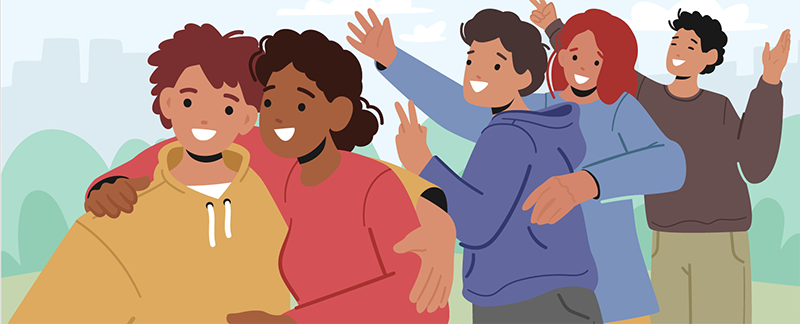Notice. Talk. Act.® at School High
Mental health is as equally important as our physical health! Nearly one out of five teens struggle with their mental health. Suicide is one of the top three causes of death for teens. You can help yourself and your friends with their mental health by doing these three things: Notice. Talk. Act.

Notice.
Look for changes in how you and your friends behave and if you Notice something that seems different or doesn’t appear right you should make a point to bring it up. While sometimes it’s easy to spot when something is off there can be other signs that are not so obvious. Pay attention to these warning signs not only for your own mental health but for your friends as well:
- Changes in mood or behavior
- Being on edge, easily agitated, aggressive, or picking fights
- Posting negative things on social media
- Engaging in risky behavior such as using drugs or alcohol
- Talking about self-harm or suicide

Talk.
Once you notice a change or sign that something might be wrong, it is important to Talk it through to better understand what is going on. This can often help reduce the feelings you or a friend might be going through or even help find a solution. If it feels like you need assistance talking to an adult or friend use the tips below to help in starting the conversation.
With a trusted adult and/or a friend:
- Find a place that is private and comfortable.
- Be open and honest about your feelings.
- Example: "Lately, I’ve been feeling ______"
Remember: A lot of people struggle with mental health, and you are not alone.
If you’re worried about someone else:
- Start the conversation with an open-ended question:
- Example: "I care about you, and I’m here to listen. How are things going lately?"
Remember: It's okay if your friend doesn’t talk right away. You showed that you are ready to listen when they are ready to share.

Act.
We’re not on this journey of wellness alone—everyone needs support sometimes, whether it’s for ourselves or for friends going through tough times. It’s important to Act and seek help when needed. Understand that by reaching out to an adult you are not “telling on your friend” - it’s to support your friend when they are going through a difficult time and getting them the help that they need. This shows that you care about them and want them to be their best self.
If you are worried about your friend or you want to get connected to mental health resources:
- Tell a trusted adult, such as your parent/caregiver, school staff member, or coach, about your feelings.
- Speak to your school mental health professionals, such as your school social worker, psychologist, school nurse or guidance counselor.
- Tell your doctor.
Remember: A lot of people struggle with mental health, and you are not alone.
To view the full digital resource visit apaf.org/schools free resources page.
If you or a loved one is having suicidal thoughts or want someone to talk to:
- Call or text the National Suicide Prevention Lifeline at 988 which is a free, confidential service that is available 24/7.
